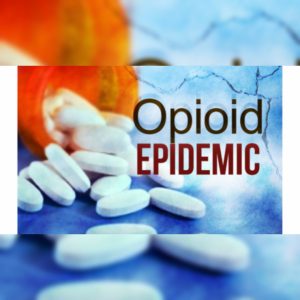
“These settlements do not complete our fight against those who created and fostered the nationwide opioid problem,” said Attorney General Shikada. “But with the assistance of our counties, these settlements are a major step forward in finding and
funding better solutions.”
The agreement marks the culmination of three years of negotiations to resolve more than 4,000 claims of state and local governments across the country. It is the second largest multistate agreement in U.S. history, second only to the Tobacco Master Settlement Agreement.
Fifty-two states and territories have signed on to the agreement as well as thousands of local governments across the country. In Hawaii, all four counties have signed on to the agreement. As a result, Hawaii will receive its full share of approximately $73 million, most of which will go to support treatment, recovery, harm reduction, and other
strategies to address the opioid epidemic.
The partnership between the counties and the State will result in the most effective use of the funds to address this epidemic in our State.
“Hawai‘i County thanks the Department of the Attorney General for taking the lead in settling this lawsuit and thank our outside counsel for their work representing theinterests of Hawai‘i County. We look forward to continued collaboration with the State in addressing the opioid crisis for Hawai‘i Island and the State,” the Corporation Counsel for the County of Hawai‘i shared.
The Corporation Counsel for the City and County of Honolulu said, “We would like to thank the Department of the Attorney General for its leadership in this lawsuit and look forward to working with the State on the use of the settlement funds.”
Kaua‘i Mayor Derek S.K. Kawakami said, “Addiction is a lifelong struggle for those affected. We still have an uphill battle ahead of us, but it’s time these major pharmaceutical companies be held accountable and help to be part of the solution. We
thank our attorneys, both past and present, for their work toward this resolution.”
The County of Maui said, “Maui is thankful to the Attorney General’s Office for negotiating such a substantial settlement that will benefit our county and the State of Hawai‘i.”
In addition to the funds, Cardinal, McKesson, and AmerisourceBergen will:
- Establish a centralized independent clearinghouse to provide all three distributors and state regulators with aggregated data and analytics about where drugs are going and how often, eliminating blind spots in the current systems used by
distributors. - Use data-driven systems to detect suspicious opioid orders from customer pharmacies.
- Terminate customer pharmacies’ ability to receive shipments, and report those companies to state regulators, when they show certain signs of diversion.
- Prohibit shipping of and report suspicious opioid orders.
- Prohibit sales staff from influencing decisions related to identifying suspicious opioid orders.
- Require senior corporate officials to engage in regular oversight of anti-diversion efforts.
Johnson & Johnson is required to:
- Stop selling opioids.
- Not fund or provide grants to third parties for promoting opioids.
- Not lobby on activities related to opioids.
- Share clinical trial data under the Yale University Open Data Access Project.
Additional information about the opioid settlement is available at https://www.morepowerfulnc.org/opioid-settlements/